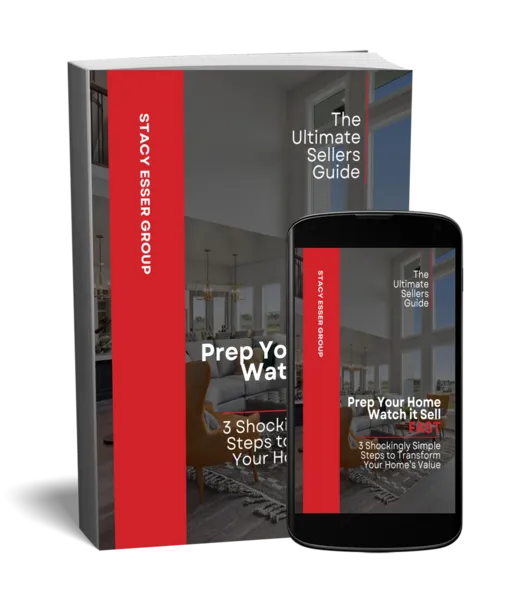SEGInsider
SEGInsider provides buyers and sellers with the latest information about Northern New Jersey, Bergen County area. Get valuable insights about moving to New Jersey, selling a home for top dollar and much more!

10 Ways to Save Money On Buying A Home
Top 10 Ways To Save Money on Buying a Home Today
The prospect of buying a home amid high mortgage rates and rising prices can be daunting, especially for first-time homebuyers. But even in this challenging market, there are opportunities to save money and secure your dream home. Below, we've expanded our list of cost-saving strategies to include some additional considerations such as buying down mortgage points, considering new construction, and utilizing various loan types.
1. Improve Your Credit Score
A better credit score can make you eligible for more favorable mortgage rates, potentially saving you thousands over the course of your loan. Check your credit report for errors, pay off any existing debts, and build a strong credit history to improve your score.
TIP: Investopedia has a great article on how to do improve your score quickly.
2. Study & Shop Mortgage Rates
Never settle for the first mortgage rate you're offered. Use online platforms that allow you to compare multiple rates at once, and consult traditional financial institutions. A small difference in interest can mean big savings over time. If you have a lender you like, even check if they will match another lenders rate you received. Once you find a lender that is consistency lower than the rest, study the mortgage rate trends trends to lock it in once you see a downward trend (even if just a little).
Tip: Check out the Freddie Mac site for the latest rate trends.
3. Buy Down Mortgage Points
Buying down your mortgage rate by paying for points upfront can result in lower monthly payments and less interest paid over the life of the loan. While this requires a larger initial outlay, it can save you money in the long term especially for 15 or 30 year fixed rate mortgages.
4. Consider New Construction Homes
Newly built homes often come with the incentive of the builder buying down your mortgage rate, saving you money. Make sure to ask builders about any promotional rates or incentives. They may start off a bit higher because they are brand new, but that also means lower maintenance costs in the long run because most of the home will be under warranty.
5. Leverage Down Payment Assistance Programs
Various federal, state, and local programs offer down payment assistance for first-time buyers. These grants or low-interest loans can significantly reduce the amount you need to save for a down payment.
TIP: Check out this Forbes Advisor article for a list of programs by state.
6. Choose a 15-Year Mortgage
If you can afford higher monthly payments, a 15-year mortgage not only allows you to own your home sooner but also can offer lower interest rates than a 30-year mortgage. This can result in substantial savings over the life of the loan. Note: A 15-year fixed loan will likely raise your monthly payment. On the other hand, you'll save money on interest, since you'll pay off the loan sooner. You'll also typically get lower interest rates compared to a 30-year loan. This can help you save even more in the long run.
7. Snag a VA, USDA, or FHA Loan
If you’re a veteran, you may be eligible for a VA loan, which often requires no down payment and offers favorable rates. Similarly, USDA loans are available for rural homebuyers, and FHA loans can be a good option if you have a lower credit score. A USDA loan is a mortgage that is either issued or guaranteed by the United States Department of Agriculture. According to the Housing Assistance Council, 97% of U.S. land is located within USDA loan–eligible boundaries, where about one-third of all Americans currently reside.
TIP: Get a list of homes from your realtor that qualify for a USDA loan and save yourself the hassle of checking each time.
8. Negotiate the Sale Price and Closing Costs
Negotiating the home price or other costs that go into a home requires a good realtor to guide you through the negotiation process. This is harder to do with homes that are new to the market or have lots of interest, so carefully consider all the factors - how long has the home been on the market, are their similar homes available, etc.
9. Look for Less Expensive Areas or Fixer-Uppers
Consider areas that are up-and-coming or homes that need a little TLC. These options can be more affordable, and the latter can also offer the potential to build equity quickly through improvements.
10. Take Advantage of Off-Season Buying
Believe it or not, the real estate market has its seasons. Typically, demand is lower during the winter months, which means less competition and more motivated sellers. By buying a home during the off-season, you may be able to negotiate a lower sale price, or get additional concessions like closing cost assistance or home warranty inclusion.
Despite today's challenging market conditions, savvy first-time homebuyers have several routes to homeownership that won't break the bank. From improving your credit score to considering different types of loans, these strategies can help you secure a home without compromising your financial stability. Happy house hunting!
Up Next: Check out our Pitfalls to Avoid for First Time Home Buyers >>>>>
Resources to help you in your journey
Learn the tricks to equity mastery with your primary residence. Read our free guide today.
Get our Top 5 Pitfalls to Avoid for First Time Home Buyers
Book Your Free Strategy Session

Whether you are a buyer or a seller, winning in real estate starts with a solid strategy. The current market has opportunities for buyers and sellers including a getting into your dream home without the highest bid or selling your current home once you have found a new home first. To learn more, book a consultation now ---->
Need to Sell Your Home First?

Get Your Free Copy of Our Ultimate Seller's Guide for Bergen County Homeowners and learn the three steps to selling your home for more money.

Most Requested Resources
Check out our most popular resources!
How to negotiate your offer in a strong sellers market. Read more.
DIY Prep tips for sellers that net the highest return. Read more.
Most critical pitfalls to avoid for first time home buyers. Read more.
The proven method to sell above market. Read more.

MOVING TO
BERGEN COUNTY?
YOUR ULTIMATE GUIDE IS HERE
WITH JUST A LITTLE STRATEGIC PLANNING & RESEARCH AT YOUR FINGERTIPS YOU CAN GET INTO YOUR DREAM HOME EASIER THAN EVER BEFORE!

Our Clients Win Big.

Client Care: (201) 500-2212
82 N. Summit Street, Tenafly NJ 07670
Stacy Esser Consulting LLC
Copyright @ 2026








